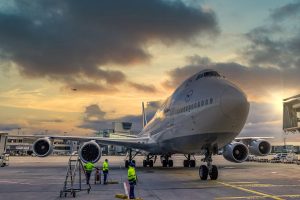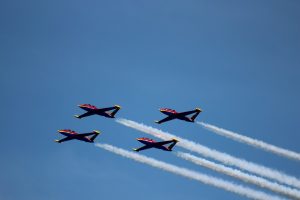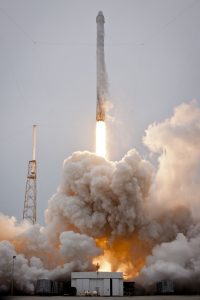
AEROdays 2019, also known as Tandem AEROdays 19.20, stands as a pivotal event within the European aerospace industry. This biennial conference, hosted in Bucharest, Romania, from May 27 to May 30, 2019, brought together aerospace experts, researchers, policymakers, and industry leaders to deliberate on the latest developments and innovations in the sector.
AEROdays 2019 was more than just a conference; it was a convergence of ideas, innovation, and collaboration that had a lasting impact on the aerospace industry. The aerospace sector, known for its continuous technological advancements and global reach, benefited immensely from the insights and discussions that took place during these four days in Bucharest.
Key Themes and Topics
AEROdays 2019 revolved around central themes, including research and innovation, sustainability in aviation, and international collaboration. It offered a comprehensive exploration of these themes, underscoring their profound significance in shaping the future of the aerospace industry.
Research and Innovation
The aerospace industry has always been at the forefront of innovation. Whether it’s the development of more fuel-efficient engines, cutting-edge materials for aircraft construction, or advancements in avionics, research and innovation have been the driving force behind the sector’s growth. AEROdays 2019 featured a multitude of technical sessions where experts shared their latest research findings. These sessions covered everything from aerodynamics and materials science to aviation safety and next-generation propulsion technologies.
Sustainability and the Impact of Aviation

The environmental impact of aviation has been a growing concern, and AEROdays 2019 made it clear that the industry was committed to addressing this challenge. Sustainable aviation was a significant focus, and discussions revolved around electric and hybrid propulsion systems, the development of alternative fuels, and the design of more fuel-efficient aircraft. Sustainability wasn’t just a buzzword; it was a call to action. Experts, engineers, and policymakers at the event came together to explore concrete ways to reduce the carbon footprint of aviation.
International Collaboration
The global nature of the aerospace industry was evident in the event’s international collaboration theme. AEROdays 2019 underscored the paramount importance of international collaboration in the aerospace sector. By bringing together participants from various European countries and beyond, the event fostered global partnerships, contributing to the enhancement of European aerospace competitiveness on the global stage. Aerospace is not limited by national boundaries; it’s a shared endeavor where nations collaborate to push the boundaries of what’s possible.
Program and Schedule
The AEROdays 2019 schedule was a meticulously designed journey through the world of aerospace. It aimed to balance keynote presentations, technical sessions, workshops, and opportunities for networking to ensure that attendees had a comprehensive experience.
Day 1 – Monday, 27 May 2019
- Registration (09:00 – 12:00): The event started with a seamless registration process where attendees collected their badges, schedules, and event materials. It also provided an initial opportunity for attendees to connect and network.
- Opening Session (13:00 – 14:00): Featuring prominent figures like Prof.Dr. Anton ANTON and more. The opening session set the tone for the event, highlighting the importance of the aerospace sector and the collaborative spirit of AEROdays.
- Keynote Speeches (14:00 – 15:00): The keynote session was a highlight of the day, featuring distinguished speakers who shared their insights on “Pushing the boundaries.” These thought-provoking presentations laid the foundation for the topics that would be explored in more detail in the coming days.
- Parallel Sessions (16:30 – 18:00): These sessions covered various topics, ensuring that attendees could choose the ones most relevant to their interests. They were a melting pot of ideas, where attendees could learn about the latest advancements in different areas of aerospace.
Day 2 – Tuesday, 28 May 2019

- Plenary Sessions (08:30 – 09:30): Focused on industrial competitiveness. The plenary sessions provided a broad view of the aerospace industry’s competitive landscape, looking at how different companies and organizations were positioning themselves for the future.
- Parallel Sessions (09:30 – 11:00): Exploring innovations. Innovation was the lifeblood of the aerospace industry, and these sessions were a showcase of cutting-edge ideas, products, and research projects. Attendees had the chance to interact with the innovators themselves.
Day 3 – Wednesday, 29 May 2019
- Plenary Sessions (08:30 – 09:15): Discussing safety and security. Safety in aviation is paramount, and these sessions delved into the latest advancements and strategies to ensure safe and secure flights. They explored everything from air traffic management to emergency response systems.
- Parallel Sessions (09:15 – 10:45): Covering various aspects. These sessions were a continuation of the exploratory journey, with diverse topics ranging from space exploration to environmental sustainability.
Day 4 – Thursday, 30 May 2019
- Travel and Site Visits: The last day wasn’t limited to conference rooms. It was about experiencing aerospace in action. Attendees had the opportunity to visit aerospace facilities, including manufacturing sites and research centers. Witnessing the technology and processes firsthand was a unique and memorable experience.
- Symbolic Handover: Marking the transition to future AEROdays events. AEROdays is a tradition, and its success doesn’t just rely on a single event. The symbolic handover ceremony signified the passing of the torch to the next organizers, reinforcing the collaborative spirit and commitment to advancing aerospace.
- Dinner Reception (19:00): The grand finale of AEROdays 2019 was an invitation-only dinner reception at the ELISABETA Royal Palace. It was a celebration of the connections made, the knowledge shared, and the commitment to the aerospace industry’s future.
Speakers and Presenters

AEROdays 2019 was graced by an impressive lineup of speakers and presenters, each contributing a unique perspective to the event. The diversity of backgrounds and expertise ensured that attendees were exposed to a broad spectrum of topics, ranging from technical innovations to policy matters, sustainability, and international collaboration.
- Mr. Bart de Vries
- Dr. Jaiwon Shin
- Mr. Jean Brice Dumont
- Dr. Maria Lopez de Victoria
As the Advisor Operations Strategy and Managing Director of the KLM Flight Schools, Mr. Bart de Vries brought a wealth of experience in aviation operations to the stage. He shared insights into the latest trends and challenges in aviation, offering a glimpse into the intricacies of operating a major airline.
Dr. Jaiwon Shin, the Associate Administrator for the Aeronautics Research Mission Directorate at NASA (USA), provided an American perspective on aeronautics research and innovation. He highlighted NASA’s role in pushing the boundaries of aerospace technology and fostering international collaboration.
Mr. Jean Brice Dumont, the Executive Vice-President Engineering at Airbus Commercial Aircraft, brought his expertise in aircraft engineering to the forefront. His presentation delved into advancements in aircraft design and engineering, emphasizing the importance of innovation in shaping the future of aviation.
Dr. Maria Lopez de Victoria, a renowned aerospace scientist and researcher, shared her insights into the intersection of aerospace and environmental sustainability. Her work in developing alternative fuels for aviation and promoting cleaner, more efficient flight technologies was a testament to the industry’s commitment to addressing environmental concerns.
These are just a few examples of the many experts who shared their knowledge at AEROdays 2019.
Sustainability in Aviation
AEROdays 2019 addressed one of the most pressing challenges facing the aerospace industry – sustainability. As aviation has grown, so have concerns about its environmental impact. The event brought together experts, researchers, and policymakers to explore eco-friendly aviation technologies.
Sustainability wasn’t just a side-topic at AEROdays; it was a central theme. The discussions and presentations emphasized the urgent need for sustainable practices in aviation. Some of the key topics included:

- Electric and Hybrid Propulsion: One of the most exciting areas of research in aviation is electric and hybrid propulsion. AEROdays 2019 showcased the latest developments in this field. Electric aircraft, with their potential to reduce emissions and noise, were a significant point of interest.
- Alternative Fuels: Traditional aviation fuels have a substantial carbon footprint. The event focused on the development and adoption of alternative fuels, including biofuels and synthetic fuels. These alternatives have the potential to reduce aviation’s environmental impact significantly.
- Designing More Fuel-Efficient Aircraft: Aircraft design plays a crucial role in fuel efficiency. Innovations in aerodynamics, materials, and engine technology were explored at the event. Participants discussed how these innovations could lead to aircraft that consume less fuel and produce fewer emissions.
Sustainability in aviation is not just a matter of compliance with regulations; it’s a matter of responsibility. AEROdays 2019 highlighted the industry’s dedication to creating a more sustainable future for aviation, one that balances growth with environmental stewardship.
International Collaboration
AEROdays 2019 underscored the paramount importance of international collaboration in the aerospace sector. While the aerospace industry has deep roots in various European countries, it’s also a global endeavor. AEROdays brought together participants from different European countries and beyond, fostering global partnerships.
International collaboration in aerospace isn’t just a nice-to-have; it’s essential for the industry’s competitiveness and growth. Here are a few key aspects of international collaboration that were emphasized at the event:
- Pooling Expertise: Aerospace research and development require a wide range of expertise. By collaborating internationally, countries and organizations can pool their knowledge and resources, accelerating progress.
- Shared Research Initiatives: Many aerospace projects are too large and complex for a single country or organization to undertake. International collaboration enables shared research initiatives that can lead to groundbreaking discoveries and innovations.
- Standardization and Regulation: Aviation is governed by international regulations and standards. Collaboration ensures that different countries can work together effectively, maintaining safety and consistency in the industry.
- Global Competitiveness: The aerospace industry is highly competitive on a global scale. By collaborating internationally, Europe can strengthen its position in the worldwide market
EU Research Framework Programmes and Horizon 2020
The European Union Research Framework Programmes played a pivotal role in supporting AEROdays 2019, particularly the influential Horizon 2020. The EU’s research programs have played a crucial role in promoting innovation in the aerospace sector. These programs provide funding and resources for cutting-edge research projects. They also facilitate cross-border collaboration, allowing researchers and organizations from different countries to work together seamlessly.
One such project is Horizon 2020. It is the European Union’s largest research and innovation program to date. It has been a driving force behind many of the aerospace industry’s advancements. At AEROdays 2019, the influence of Horizon 2020 was evident in the research initiatives, collaborative projects, and innovations showcased. This program’s financial support enabled researchers, startups, and established aerospace companies to pursue ambitious projects that contributed to the industry’s growth.
Conclusion
AEROdays 2019, also referred to as Tandem AEROdays 19.20, made a substantial impact on the aerospace industry. It served as a testament to the industry’s commitment to addressing pressing challenges, embracing sustainability, and pushing the boundaries of what’s possible in aerospace.
The impact of AEROdays 2019 is expected to resonate in the industry for years to come. The knowledge shared, the connections made, and the commitment to sustainability and innovation are all poised to shape the future of aerospace in Europe and beyond.
